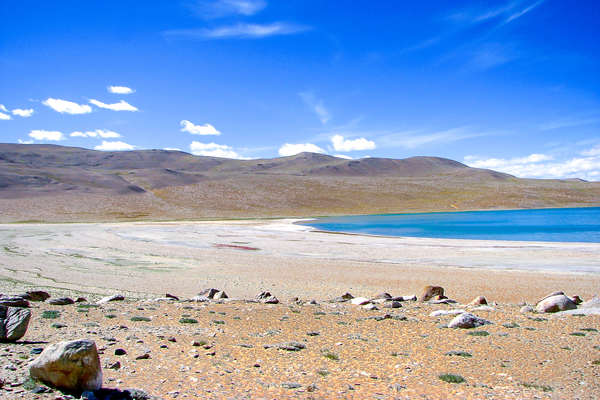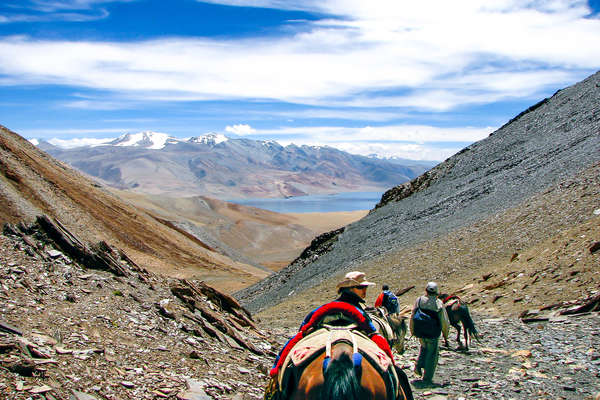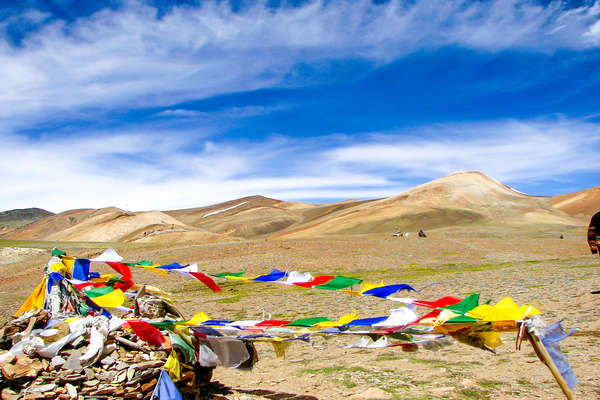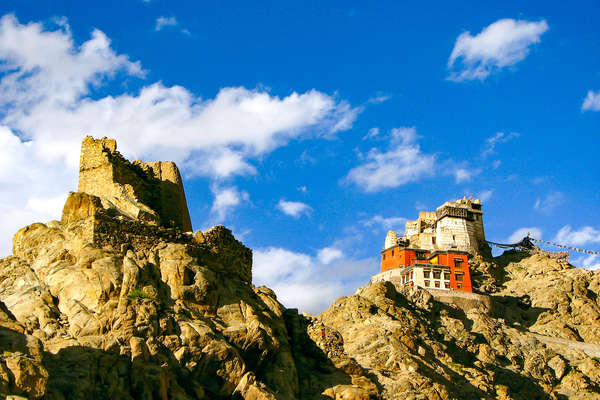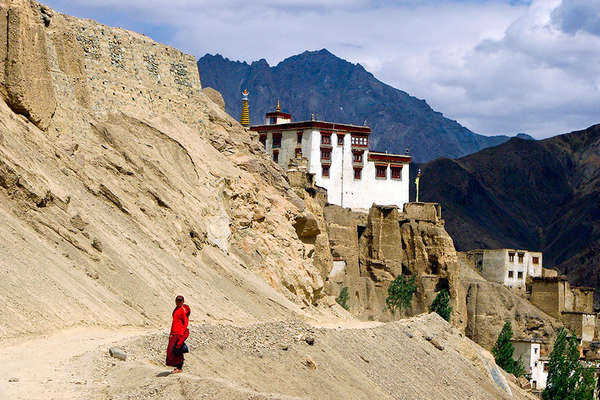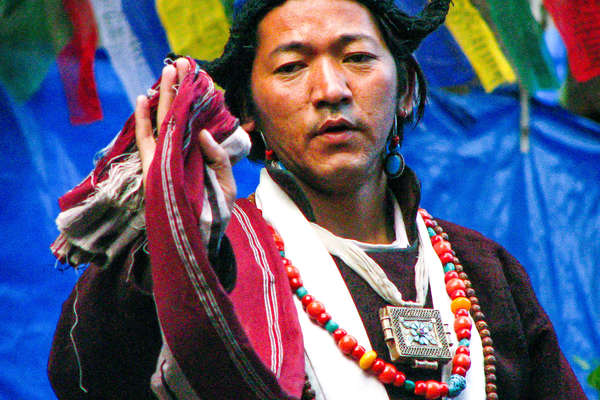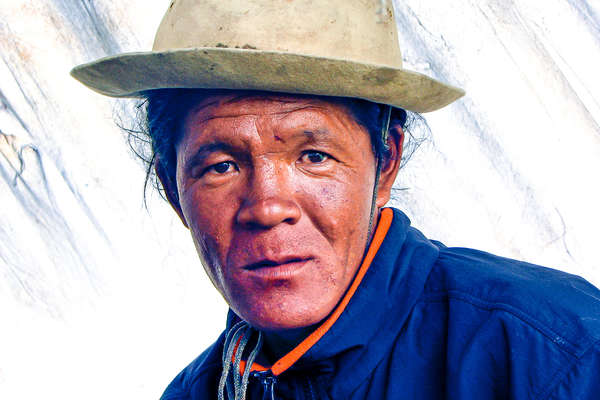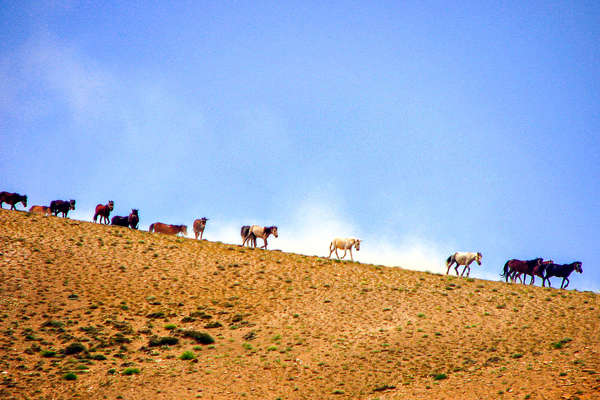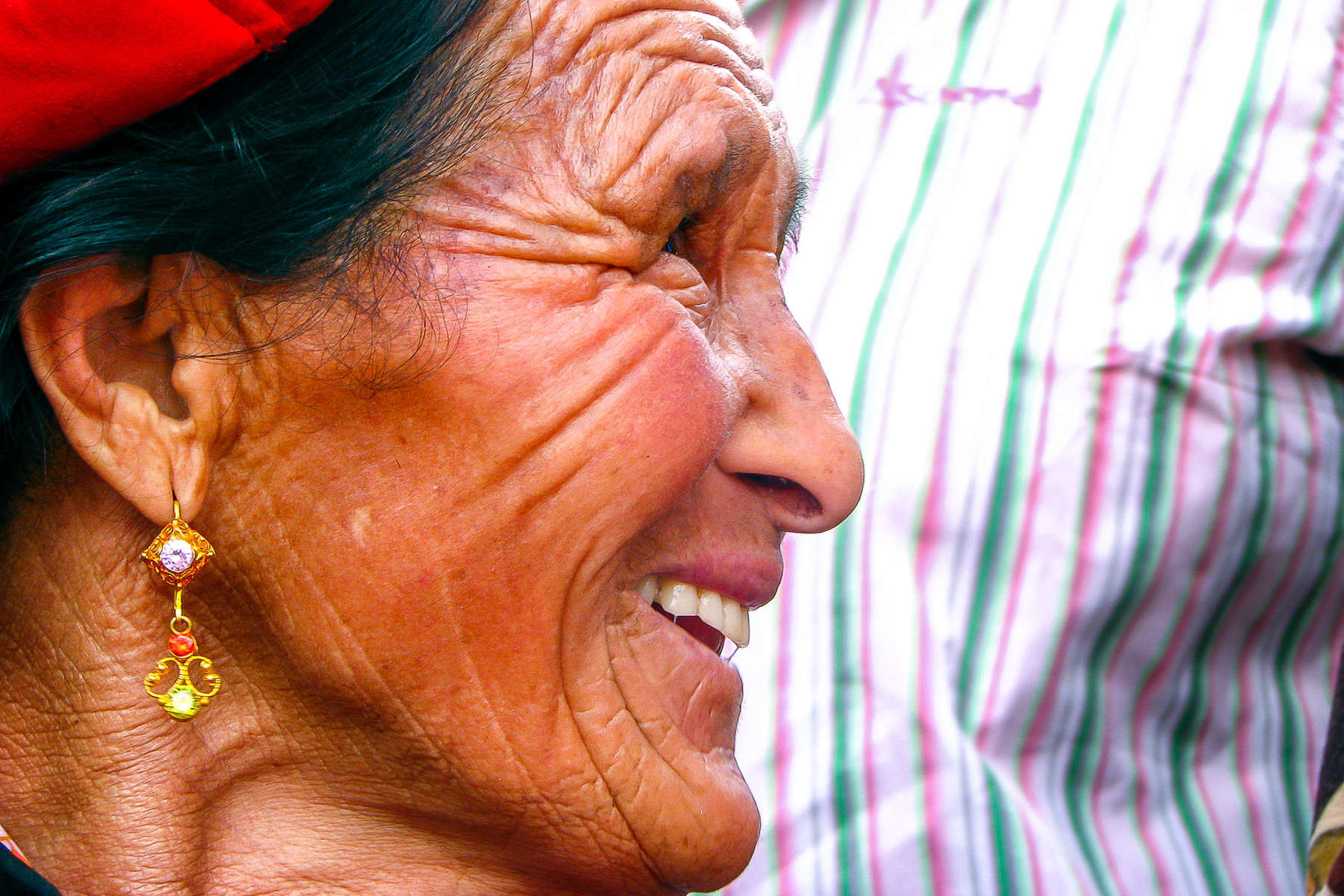
Itinerary
Highlights
- Visit the Buddhist monasteries in the Indus Valley whilst acclimatising to the altitude
- The departure date is linked to a Buddhist festival at Dhak Tok.
- Pack horses carry your supplies and equipment as you climb ever higher into the Himalayas
- Meet a Tibetan population who live freely by their own traditions
Dates & prices
Price details
- Flights to Delhi are not included, but can be booked on request - please contact us for rates. The domestic flight is included.
- Rates are per person, based on two riders sharing a twin room/tent
- The group is made up of 4 - 9 riders
- There is a small group supplement payable if the group is less than four riders:
If 3 riders booked: c. €280/£240/$300 per person
If 2 riders booked: c. €700/£600/$760 per person
- There is a single supplement of c. €395/£345/$420 per person if you end up in a single room. This is refunded if we later find a sharer for you.
- A visa is required to enter India and is your responsibility
- Maximum rider weight limit: 95kg / 210 lbs / 15 st
Please Note
The itinerary may be modified at anytime for security reasons, meteorological or events beyond our control such as blocked roads, rivers in flood, drought, strikes and local holidays. Equus Journeys, our local partners and their local guides will always strive to find the best solution and will alter the itinerary as needed.
The names of the hotels and accommodation are given for information only and depending on availability, they may be modified without notice and replaced by another of a similar standard.
Price includes
Support Team
1 English speaking local guide in Delhi
Logistics
Packhorses to carry your luggage
Horsemen in charge of the packhorses and his assistants for logistics
1 cook
Inland transport
Internal flights to Leh
Private bus for land transfers
Accommodation
2 person per tent (3 men tent). Foam mattress.
Meals
Price doesn't include
Meals
Transport
International flights
Insurance
Extras
Park, museum and touristic sites fees. Expect to pay around £30
Services in Agra (Guides and transfers). Expect to pay around £20
Small group supplement
Optional
Accommodation
Extras
Equestrian info
Horses
Guide & local team
The expedition leader, assisted by mules, is responsible for the horses and route.
There is a cook to prepare the meals.
Minimum riding ability
Minimum riding ability
Maximum rider weight limit: 95kg / 210 lbs / 15 st
Pace
Tacking ability and participation
Trip conditions and Requested experience
You need to be physically fit for long hours in the saddle. Riding is all at altitudes between 3400 m and 5200 m so acclimatisation is progressive throughout the ride. The temperature can change suddenly and the wind can be very violent, be prepared for large variations in temperature between night and day. There may also be frosts overnight.
Having previous experience of a riding a trail of several days would be an advantage but it is not compulsory. Guests who do not ride regularly are requested to get fit prior to the ride. It is of particular importance to ensure you are comfortable and balanced when riding across rough ground and in open spaces. You may be asked to dismount on particularly tricky parts and lead your horse on foot - please wear sensible footwear.
Visiting a new country offers the opportunity to meet other cultures with different mentalities, therefore it is important to accept these differences and respect the local way of life.
Equestrian equipment
Helmets are not provided and you should bring your own.
We recommend our riders to wear a helmet to the correct standard and you should bring your own to ensure a proper fit
Travel info
Comfort
Small 2 man tents, with mattresses. Comunal toilet tent Meals will be very simple as you are carrying supplies with you for the duration of the trip.
Meals
Contrary to popular belief, all Hindus are not vegetarians and strict vegetarianism is limited to the south. However, you are unlikely to be served beef steak as the cow is sacred. Some Muslim restaurants will serve buffalo.
Water:
Take care not to drink water from unknown sources. It is better to buy mineral water when staying in the towns. On the trail you will need water purification tablets such as Micropur.
Climate
There are two main seasons in Ladakh - the harsh winters can see temperatures as low as -30c. The horse riding trails only run in the summer months when the climate is very dry and rough with an intense sun.
Tips
Be careful not to tip too much - being overly generous can affect the general standard of living and destablise the local economy. If children earn more money than their fathers by begging or asking for money for photos then this can create major distortions within the family.
Packing list
- You should take two medium sized bags with you rather than one large bag so that they can be carried by the pack horses.
- Please pack in accordance with local religious and traditional cultures - it is important to keep your shoulders and knees covered when meeting local populations. Please do not wear shorts or strappy tops in towns and villages.
Head
- Equus Journeys strongly recommend that you wear a riding helmet and that you take your own to ensure a correct fit. There are many lightweight options available nowadays
- Sunhat for when not riding
- Sunglasses - with a cord attached so they don't fly off when riding
- Buff or bandana
- Warm hat for cold nights when camping
Upper body
- Thermals (long or short sleeved)
- Long sleeved shirts provide protection from the sun and are an extra layer
- T-shirts
- Lightweight fleece or jumper
- Warm fleece or jumper (and a spare in case one gets wet)
- Warm and waterproof jacket - it can rain at any time of year and the evenings can be particularly cold
Legs
- Lightweight, comfortable riding trousers or jodhpurs - we recommend riding in them at home before taking them on holiday to ensure they don't rub
- Thermals
- Casual trousers for the evenings, such as jeans or tracksuit bottoms
- Waterproof over trousers
- Lightweight, comfortable trousers for non-riding days
Hands and Feet
- Comfortable riding boots. We recommend short boots with half chaps but you may wish to take long chaps as an extra layer against inclement weather. We don't recommend taking your favourite long leather boots in case they get damaged
- Waterproof shoes/boots can be useful for abundant dew in the mornings or when it rains
- Trainers or equivalent light shoes for moving around the camp in the evenings
- Several pairs of warm, thick socks
- Gloves - your hands are particularly exposed to the sun, cold or rain whilst riding. Waterproof gloves can be particularly useful
Nightwear
- Sleeping bag. You need at least a comfort factor down to minus 10 celsius.
- Sleeping bag liner - silk, cotton or fleece - adds an extra layer
- Pyjamas or tracksuits or thermals for sleeping in
Other useful items
- Swimsuit - for swimming/bathing in rivers
- Small backpack for accessing items required during the day (carried by support crew)
- Camera and high capacity memory card. Spare battery
- Bumbag for carrying your camera and small items whilst riding
- Headtorch or small torch for moving around camp at night - bring spare batteries and bulbs
- Water bottle (2 litres or 2 x 1 litre)
- Wet Wipes or equivalent (for when washing facilities aren't available)
- Toilet paper and a lighter to burn it with
- Small plastic bags for rubbish
- Ear plugs (for light sleepers)
In your hold luggage
- Any liquids, such as shampoo, moisturiser, deodorant unless they are less than 100ml and all bottles can fit in a small, clear, plastic ziplock bag. We recommend biodegradable washing products where possible.
- Swiss army knife (or equivalent)
In your hand luggage
- Any valuables, such as your camera, ipod, ipad etc.
- Travelling in your riding boots and carrying your hat and some riding clothes is highly recommended - then if your luggage goes astray you are still able to ride!
Medical kit
- Please remember this is a high altitude ride (camping up to 4900 m). Please take adequate precautions against altitude sickness.
- Sunscreen and lip balm - should be high factor
- Insect repellent, preferably containing deet
- Any medication you regularly take
- Blister plasters in case of any rubs
- Antiseptic cream, plasters, aspirin, anti-histamine, insect-bite salve etc...
- Spare prescription glasses/contact lenses
- Eye drops
- Imodium or similar anti-diarrhoea medication
- Re-hydration sachets
- Water purification tablets
- Antiseptic wipes
- Handwash gel
You may wish to ask your doctor for some specific medication for travelling at High Altitudes. We recommend that you discuss this directly with your doctor who is best placed to advise on your personal medical history.
Our Recommendations
- Please don't take a hard sided suitcase. Your luggage should be soft sided with a capacity of 60-80 litres. We recommend taking a backpack or similar. The luggage limit on the ride is 15kg per person.
- Backpacks cannot be worn whilst riding. We recommend a small bumbag or a coat with pockets so that you can carry small items with you during the day (camera, sunscreen, lipbalm etc)
- Even if foam mattresses are provided, you may pack your inflatable mattress for comfort sake.
- We recommend travelling in your riding boots and carrying your hat and some riding clothes in your hand luggage - then if your luggage goes astray you are still able to ride!
- Tall riders may benefit from taking a pair of long stirrup leathers with them (the local stirrups are adjustable but are sometimes limited in length)
- We recommend taking a copy of your passport and insurance documents with you in case you lose your originals
- Please take your rubbish home with you. There are no recycling facilities in Tibet, so take your used batteries, aerosols etc back home and dispose of them appropriately. Try to leave excess packaging material at home before travelling
- If you prefer travelling in a "light way" please choose a biodegradable soap or washing powder/liquid.
Sustainable tourism
- Travel light. It's a little known fact, but the lighter you pack, the better for the environment as heavy bags will produce higher emissions (when flying a plane or driving a car!).
- Reduce plastic waste. Take your favorite reusable bottle with you. Avoid single-use bags, cups, or straws.
- Preserve nature. Always take your rubbish with you during the ride and recycle them. Leave all the flowers or plants as you found them, and never get too close when observing wildlife. Make sure to use eco-friendly products such as body wash or laundry detergent (if camping) to protect both your skin and the environment.
- Choose your experiences carefully. Respect animal life by not participating in any activities that abuse wild animals (shows, elephant rides, etc.).
- Support local populations. Buy local handicrafts, be respectful of customs, and learn about the culture of local communities.
- Share! Raise awareness among your family and friends about sustainable tourism.
Did you know?
Did you know?
The Dhak-Thok is an important festival celebrated at the Dhak-Thok Gompa (shrine) in Leh on the 10th day of the Lunar Tibetan Calendar. This festival draws a large number of tourists and local people together. The festivals are celebrated by chham dances where both the monks and the locals dance to music. The dances are meant to represent the different aspects of the Gods and depict a variety of animals.
It is believed that visitors who witness the festival are granted protection from evil. The festival is also seen as a social gathering where the locals adorn themselves in the best of clothes and jewelry. During the festival you will witness the dance of the lamas, mask dances and the religious offerings made to the lord.
This riding expedition in India allows you to take part in this captivating cultural experience.

